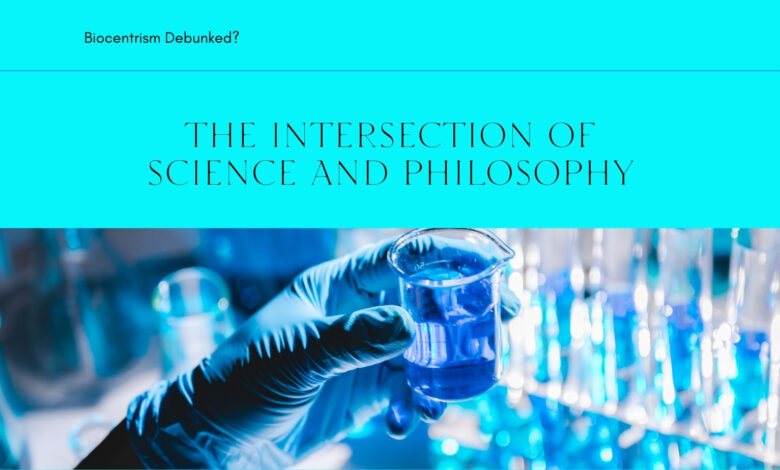Biocentrism Debunked? Unraveling the Controversy at the Crossroads of Science and Philosophy

Introduction to Biocentrism
Biocentrism, a provocative theory in the realm of science and philosophy, suggests that life and biology are central to reality and that life creates the universe, not the other way around. This concept, introduced by scientist Robert Lanza, has sparked intense debate and scrutiny, leading to a pivotal question: Is Biocentrism debunked? This article delves into the core principles of biocentrism, its implications, and the arguments that challenge its validity, aiming to provide a comprehensive understanding of this controversial intersection between science and philosophy.
The Principles of Biocentrism
At its core, biocentrism challenges traditional views of the universe. Lanza posits that our understanding of the cosmos is inherently linked to our perception as living beings. According to biocentrism, time and space are not hard, external objects but rather tools of the human and animal understanding. The theory further argues that death does not exist in a timeless, spaceless world, and that our consciousness shapes the universe. These revolutionary ideas have attracted both support and criticism, fueling the debate on the nature of reality and our place in the universe.
The Criticisms of Biocentrism
Critics of biocentrism argue that the theory lacks empirical evidence and is more philosophical than scientific. They point out that biocentrism leans heavily on quantum mechanics, particularly the observer effect, which states that the act of observation affects the system being observed. However, critics argue that Lanza’s interpretation of this effect is a misrepresentation and that he overextends the implications of quantum mechanics to larger, macroscopic systems. This skepticism forms the basis of the argument against biocentrism, raising questions about its scientific validity and reproducibility.
must read: Exploring Success in Property Deals A Closer Look at Limestone Commercial Real Estate Services
Biocentrism and Quantum Mechanics
A key area of contention in the biocentrism debate is its relationship with quantum mechanics. Biocentrism asserts that life and consciousness are fundamental to understanding quantum mechanics, with the observer playing a crucial role. However, many physicists argue that this is a misinterpretation of quantum theory. They assert that while observation does play a role in quantum mechanics, it does not necessitate consciousness or life. This disconnect between biocentrism and the established scientific understanding of quantum mechanics is a central point in the arguments seeking to debunk biocentrism.
Philosophical Implications of Biocentrism
Apart from its scientific aspects, biocentrism also wades into deep philosophical waters. It challenges the Cartesian dualism of mind and matter, proposing that our consciousness creates the material world. This idea resonates with some Eastern philosophies and metaphysical viewpoints, adding a complex layer to the discussion. Philosophers involved in this debate often question whether biocentrism offers a viable philosophical model or if it’s merely a new form of idealism or solipsism, reviving ancient philosophical questions about the nature of reality.
The Role of Subjectivity in Science
A significant aspect of the biocentrism debate is the role of subjectivity in scientific inquiry. Biocentrism suggests that our observations and consciousness play a vital role in shaping reality, blurring the line between subjectivity and objective understanding. This notion challenges the foundations of scientific methodology, which strives for objectivity and reproducibility. Critics argue that by placing subjective experience at the center of reality, biocentrism undermines the very nature of scientific exploration and discovery.
Biocentrism in the Context of Evolution and Biology
Another angle from which biocentrism is critiqued is its alignment with evolutionary biology. Critics argue that biocentrism overlooks the basic tenets of evolutionary theory, which explain the development of life as a series of random, unguided events, not a conscious, universe-creating process. This viewpoint raises questions about the biological underpinnings of biocentrism and whether it can coherently integrate with the current understanding of biological evolution and the origins of life.
Conclusion: Weighing the Evidence
In conclusion, while biocentrism presents an intriguing perspective on the nature of reality, blending elements of science and philosophy, it remains a highly controversial and debated concept. The criticisms of biocentrism, particularly its scientific underpinnings and philosophical assertions, highlight the challenges it faces in gaining wider acceptance in the scientific community. Whether biocentrism can be entirely debunked or not remains a matter of debate, but it undoubtedly serves as a catalyst for profound discussions on the nature of consciousness, reality, and our understanding of the universe. As the dialogue continues, biocentrism stands as a testament to the enduring quest for knowledge at the crossroads of science and philosophy.